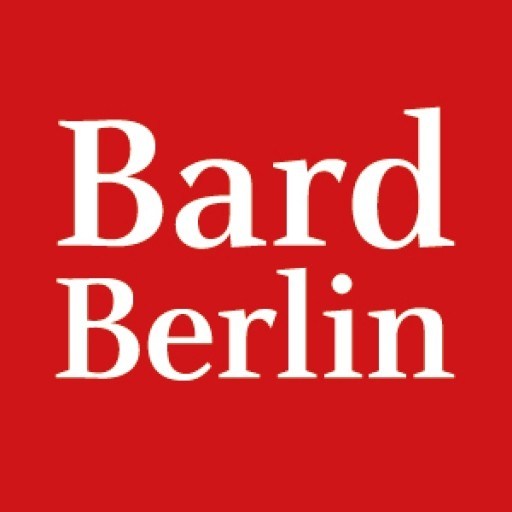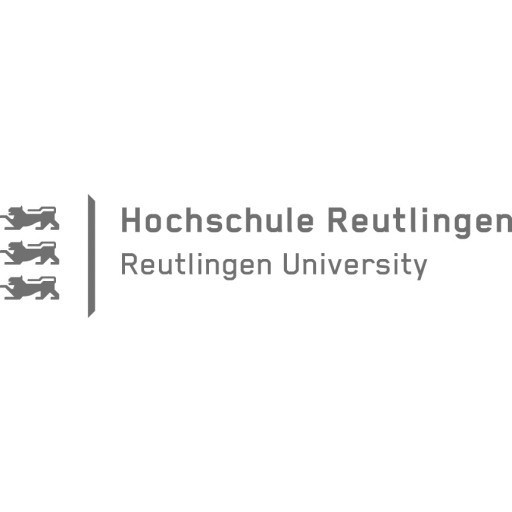International Business and Social Sciences at Rhine-Waal University of Applied Sciences offers a comprehensive and interdisciplinary education designed to prepare students for the dynamic global marketplace. Combining core concepts from international business, management, economics, and social sciences, the program emphasizes both theoretical understanding and practical skills necessary for successful careers in international companies, NGOs, government agencies, and other organizations operating across borders. Students will explore diverse topics such as cross-cultural communication, international marketing, global economic systems, organizational behavior, and social responsibility, gaining insights into how businesses function within complex social environments. The curriculum includes a blend of lectures, project work, internships, and case studies to foster critical thinking, cultural awareness, and problem-solving abilities. The program is characterized by its international orientation, with diverse student cohorts and opportunities for semester exchanges or internships abroad, enabling students to develop a truly global perspective. The faculty comprises experienced academics and industry professionals committed to guiding students through contemporary issues in global business and social sciences. Upon graduation, students will be equipped with the analytical and interpersonal skills needed to succeed in international contexts, contributing effectively to diverse teams and organizations. The program aims to foster responsible leadership, innovation, and social responsibility, aligning with the university's mission to prepare students for a competitive and interconnected world. Graduates will have numerous career options, including roles in international management, consulting, non-profit organizations, public sector institutions, and entrepreneurship. This program is ideal for motivated individuals interested in understanding and shaping the future of global business and social structures, offering a solid foundation for a wide range of international professional opportunities.
Educational organisation
Your first semesters will introduce you to logistic systems as well as to planning and applied problem solving methods. You will acquire a firm grounding in business administration and specialist knowledge in technical fields such as information technology and electrical engineering, learning for example about identification systems and automation. This knowledge is the key to dealing with the latest technologies used in mobility and logistics and to being successful on a global scale.The fourth and fifth semesters will then give you the chance to broaden your professional horizon by studying electives in the fields of logistics, engineering or economics according to your interests and career aspirations. You will also have the opportunity to work independently on a research or development project.
The sixth semester focuses on the practical application of your knowledge and will give you the chance to either do a work placement or study abroad. This will be another valuable experience and a great boost to your CV.
In the seventh semester, you will complete your Bachelor's thesis, which you will then present and defend in an open discussion with professors.
Study abroad unit(s)
In the sixth semester, students have the chance to either study abroad or do an internship (in Germany or abroad). We provide support in selecting partner universities and institutions as well as in raising funds.Internships
In the sixth semester, students have the chance to either study abroad or do an internship (in Germany or abroad). We provide support in selecting partner universities and institutions as well as in raising funds.Forms of assessment
Graded examinations (written examinations, seminar papers, presentations, written assignments) and certificates (projects, reports, presentations)Bachelor's thesis
Course objectives
As one of the leading and fastest growing economic sectors worldwide, mobility and logistics offers a wide range of careers. By the time you graduate, you will have become a highly qualified expert in the management of logistics and will also have the knowledge and skills to respond to new challenges in the field of public and private mobility. You can expect to work in business areas like planning, implementation, or economic operation and optimisation of current or future logistic processes and mobility concepts. Our graduates are highly sought after for senior positions in mobility and logistics. They gain employment as planners, consultants, innovators, or optimisers and are often responsible for a range of duties such as distribution, purchasing, or process and product development.Language requirements
Please note that for this degree programme English language skills at level B2 according to the Common European Framework of Reference are required. Please be aware that all applicants' test report form numbers will be checked. We will accept the following certificates (or equivalents):IELTS: 6.0 - 6.5
TOEFL (Internet-based test): minimum 80
TOEFL (paper-based test): minimum 550
TOEFL (computer-based test): minimum 213
The TOEFL code of our university is: 6962
The only exceptions to these language requirements are a secondary school certificate or a Bachelor's degree achieved in the following countries: USA, Canada, UK, Ireland, Australia or New Zealand. Please understand that no further exceptions can be made, even if you have achieved a Bachelor's degree taught in English in any other country.
Academic requirements
Rhine-Waal University of Applied Sciences welcomes applications from nationals of all countries. Please see our website for general admission requirements.Other requirements for Mobility and Logistics BSc degree programme:
- A sufficient level of English language proficiency (level B2 CEFR or better)
- Completion of an eight-week internship before the start of the fourth semester. You can also do this internship in your home country before applying to Rhine-Waal University of Applied Sciences.
- Interest in technical, economical and organisational problems
Enrolment fees
Approx. 270 EUR per semester. This covers nominal administration fees and includes a semester ticket that allows free travel on most bus and train routes throughout the state of North Rhine-Westphalia as well as to and from Nijmegen in the Netherlands.Costs of living
The "Deutsches Studentenwerk" puts the average cost of living for students in Germany at around 700 to 800 EUR per month. This includes rent, utilities, personal expenses, and other nominal costs. For a sample breakdown of living expenses and information about financing your studies in Germany, please see our website: http://www.hochschule-rhein-waal.de/en/academics/students/costs-scholarships-and-grants.Job opportunities
International students from non-EU countries are legally permitted to work 120 full days or 240 half days per year on a student visa. No additional authorisation from German authorities is required.Rhine-Waal University of Applied Sciences often posts job advertisements for students both inside and outside the university on campus noticeboards. Some jobs at the university only require English, but most jobs in Kleve, Kamp-Lintfort, and surrounding areas will require at least conversational fluency in German. Fortunately, our Language Centre offers German courses that students can attend at no charge.
However, due to the intense workload at Rhine-Waal University of Applied Sciences, first-year students are strongly advised to dedicate their full attention to their studies. In later semesters, you will have a more open schedule and a better idea of how to balance work and studies. This is also a realistic time frame for acquiring speaking proficiency in German while studying full-time.
Funding opportunities within the university
A limited number of scholarships are available for currently enrolled students at Rhine-Waal University of Applied Sciences. The most prominent scholarship is the Germany Scholarship ("Deutschlandstipendium"). German and international students are both eligible to apply. The Germany Scholarship is a stipend of 300 EUR per month awarded each year to a limited number of students who have demonstrated excellent academic performance or exemplary social commitment to the community. Other scholarships, grants, and fellowships are available through regional and national organisations in Germany. Please see our website for details.Rhine-Waal University of Applied Sciences informs all students of important scholarship deadlines in advance so that they don't miss any potential application opportunities.
http://www.hochschule-rhein-waal.de/en/academics/students/costs-scholarships-and-grants/scholarships-and-grants
Arrival support
Rhine-Waal University of Applied Sciences is accessible from the international airports Amsterdam (AMS), Düsseldorf (DUS), Cologne/Bonn (CGN), and Weeze (NRN). The university does not offer any pick-up services, but both Kleve and Kamp-Lintfort can be reached by public transportation from any of these airports.If you anticipate any travel problems, delays, or unexpected changes to your plans, please contact our Welcome Centre so that we can support you with helpful advice.
Services and support for international students
Our Welcome Centre supports international students during their first few weeks in Germany. The Welcome Centre provides helpful advice and guidance on contracts, opening a bank account, registering your place of residence, applying for a student visa, setting up health insurance, and more.The student mentors at the Welcome Centre know first-hand what it's like adjusting to life as a student in Germany. They are also an important first contact point for students with personal and social issues, as they can direct students to the right place for their specific needs. The Welcome Centre also promotes student culture at the university by organising trips and excursions to destinations all around the region as well as a range of social events for students such as the annual "Freshtival", the university's week-long orientation festival for new students in the winter semester.
Accommodation
Rhine-Waal University of Applied Sciences strongly urges you to make accommodation arrangements before your arrival. The university does not have its own residence halls, but the "Studierendenwerk Düsseldorf" runs dormitories near campus in Kleve and Kamp-Lintfort with options for single rooms or two- and three-room flats. Prices start at around 220 EUR per month. Room availability in these dormitories is limited and subject to a waiting list, so it's important to register online for a room as soon as possible. Please note that a security deposit of three months' rent is also required.Most students choose to share a private flat off campus with fellow students. There are a number of popular online portals for finding a flat in Germany, for example: http://www.wg-gesucht.de. Rhine-Waal University of Applied Sciences also maintains its own list of available flats and rooms for students on its website. Thanks to the flexibility of the Semester Ticket, students can live in Kleve, Kamp-Lintfort, or one of the many cities and towns nearby and reach campus by public transport. For more information and helpful tips on finding a flat, please see our website: http://www.hochschule-rhein-waal.de/en/academics/prospective-students/housing.








